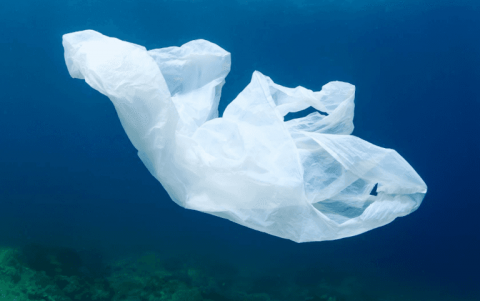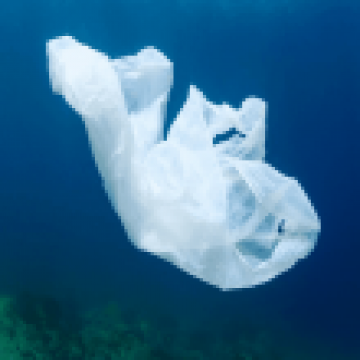150 Organizations Call for Ban on ‘Biodegradable’ Plastic Packaging
Leon Kaye
Triple Pundit
For several years, oxo-degradable plastic packaging was hailed as one solution to cope with mounting pollution and overwhelmed municipal waste streams. These materials could be made out of conventional plastic resins, such as polyethylene, polypropylene or polystyrene, with ingredients such as metal salts added to hasten disintegration. This grade of packaging also includes plant-based resins that could biodegrade in industrial composting or biogas generating facilities.

But today, 150 various organizations, including the Ellen MacArthur Foundation, have announced that the science suggests that these plastics are contributing to, not alleviating, the micro-plastic pollution damaging ecosystems worldwide.
The organizations cite research undertaken by universities, government agencies, laboratories, plastic trade associations and NGOs that have concluded oxo-degradable plastics are not suited for long-term reuse, recycling or composting. Instead, evidence has shown that these plastics often fragment into small pieces often not visible to the naked eye; those microplastic particles in turn often end up in both soil and oceans.
“The available evidence overwhelmingly suggests oxo-degradable plastics do not achieve what their producers claim and instead contribute to microplastic pollution,” said Rob Opsomer of the Ellen MacArthur Foundation in an emailed statement to TriplePundit. “In addition, these materials are not suited for effective long-term reuse, recycling at scale or composting, meaning they cannot be part of a circular economy.”
Some companies and governments have responded to concerns about oxo-degradable plastics by restricting their use, particularly within Europe. In the United Kingdom, retailers such as Tesco stopped distributing plastic bags made out of oxo-degradable resins. France banned the use of oxo-degradable plastics altogether in 2015; a similar ban in Spain will begin next year.
The problem, however, is that oxo-degradable plastics are still manufactured in many European countries. The packaging is then marketed and sold across the world with the promise that it is safely biodegradable. Several countries in the Middle East and Africa, including the United Arab Emirates, Saudi Arabia, South Africa and Ghana, encourage the distribution of oxo-degradable plastics, or have even made their use mandatory.
The signatories of this letter insist oxo-degradable plastic packaging be banned until extensive, independent third-party research and testing based on widely accepted international standards can confirm these materials can actually biodegrade without any harm to the environment. Furthermore, the organizations say more research and innovation are needed to develop plastics that can biodegrade in different environments over a period of time short enough so that particles do not to accumulate in soil or oceans.
In the meantime, the Ellen MacArthur Foundation’s New Plastics Economy initiative seeks a zero waste and regenerative system that can work with innovations in plastic. Such materials would be designed so they do not create waste and pollution; they would also encourage the manufacture of products and materials that not only have a high value, but would fall in line with the what the NGO says are the principles of a circular economy.
Organizations that say they are aligned with the Ellen MacArthur Foundation include Marks and Spencer, PepsiCo, Unilever, Veolia and World Wildlife Fund (WWF).
“Using oxo-degradable additives is not a solution for litter. Their use in waste management systems will likely cause negative outcomes for the environment and communities,” said Erin Simon, Director of Sustainability Research and Development at WWF. “When confidential public policy supports the cascading use of materials – systems where materials get reused over and over, this strengthens economies and drives the development of smarter materials management systems. This leads to wins for both the environment and society.”
Image credit: Ellen MacArthur Foundation

